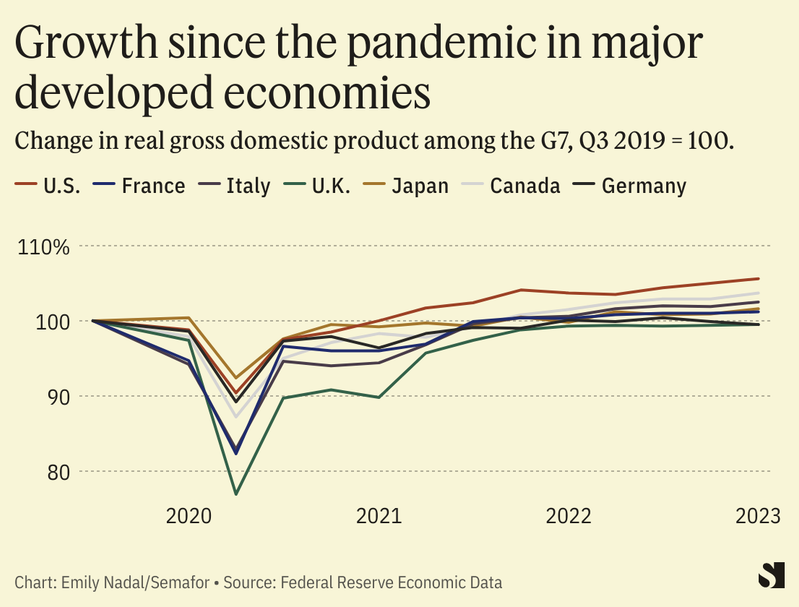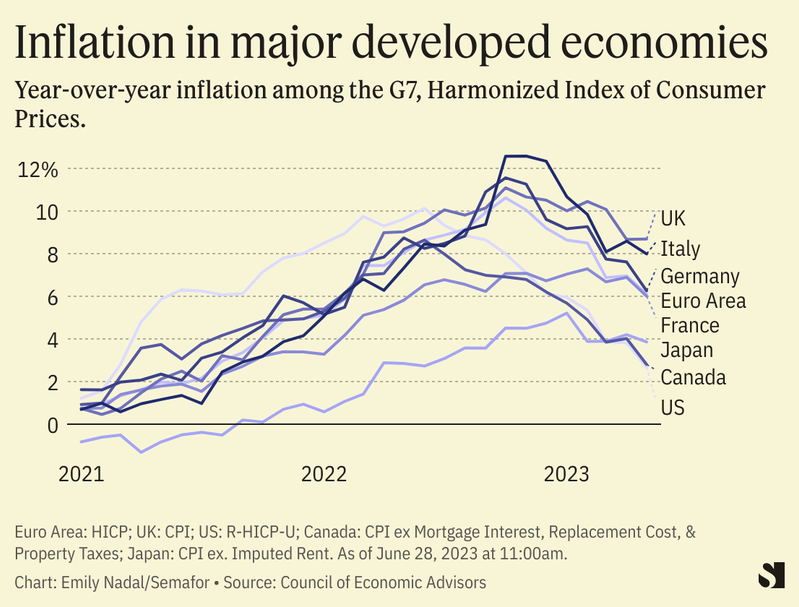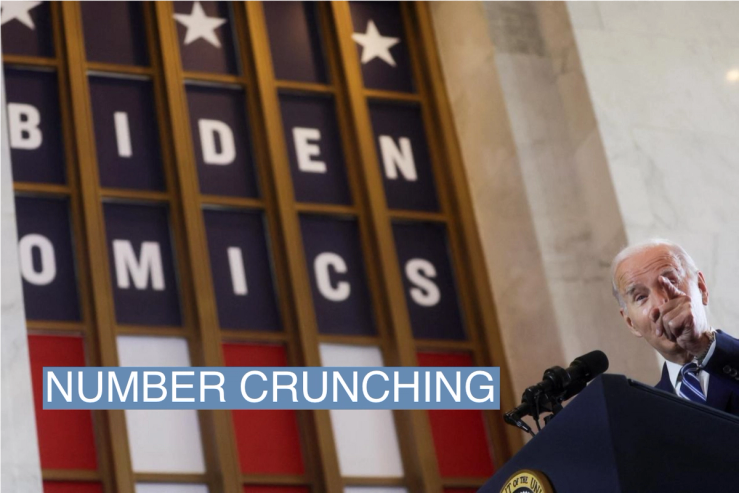The Stats
White House officials are pointing to a pair of eye-catching stats to make the case that President Biden’s economic policies have been a world-beating success — even if many voters are still frustrated about inflation.
First, they note that the U.S. has enjoyed the fastest growth among any member of the G7, the club of major developed economies, since the start of the COVID crisis.

Second, the U.S. has experienced the G7’s lowest inflation rate over the past 12 months, when compared on an apples-to-apples basis. That holds true, even if you subtract food and energy prices from the picture, which spiked in Europe thanks to the war in Ukraine.

Combined, the trends show the U.S. is enjoying “the strongest recovery of any major economy in the world,” Biden senior advisers Anita Dunn and Mike Donilon wrote in an open memo last week. “This progress wasn’t inevitable or an accident — it has been a direct result of Bidenomics.”
The View From The White House
The wonky international comparisons may not get as much attention during stump speeches as, say, the unemployment rate, but they are critical to the administration’s intellectual case for its success.
In particular, White House economists say they’re a vindication of the American Rescue Plan — the massive stimulus package Biden signed shortly after coming into office. That bill has widely been blamed for lighting the fuse on consumer prices. But the data “shows clearly inflation was a global phenomenon,” said Ernie Tedeschi, chief economist at the White House Council of Economic Advisers. By contrast, “growth through the pandemic was not a shared experience.”
Comparisons between the U.S. and Europe all require at least one obvious caveat: The war in Ukraine, which sent natural gas prices spiraling across the EU, dealing a blow to growth and inflation. “We should be clear-eyed that there are many European countries that are more directly affected by the war than we are,” Council of Economic Advisers Chair Jared Bernstein told Semafor. “Whether it’s energy prices or food prices, they’re hit harder by that.”
Still, Bernstein said, “Obviously we think our policies have played a role in getting us to where we are today.”
Room for Disagreement
Just because the U.S. is leaving Germany and the U.K. in the dust on growth doesn’t mean it’s time to declare victory for Biden’s stimulus strategy, says Harvard Kennedy School Economist Jason Furman, one of the administration’s most vocal friendly critics.
For starters, the U.S. economy isn’t alone in growing quickly: It’s bounced back from the pandemic faster than the G7, but is still lagging behind some other advanced economies, such as South Korea, Sweden, and Australia, that spent less on stimulus. And while U.S. GDP growth has been brisk and jobs are plentiful, its employment growth has actually been slower than Europe’s.
Finally, one reason U.S. inflation may be declining while Europe’s is flaring is that the Federal Reserve has been more aggressive about hiking interest rates compared to the European Central Bank. In Furman’s view, that may be a success story for American economic policymaking, but not necessarily the administration’s strategy. “I’m not sure I would call Bidenomics the idea that when the economy is overheating you should raise interest rates by 500 basis points,” he said.
Jordan’s view
“Don’t compare me to the almighty, compare me to the alternative,” Biden likes to tell voters, and that now applies to national economies as well. With all the caveats in mind, the big picture is that the U.S. looks like it’s economically outperforming much of the developed world on growth, even as it seemingly begins to tame inflation. Biden’s policymaking may not have been perfect, but at this point, it certainly doesn’t look like the flop so many voters imagine.
Correction
This post originally referred to Ernie Tedeschi as a senior economist at the CEA. He is the chief economist.


